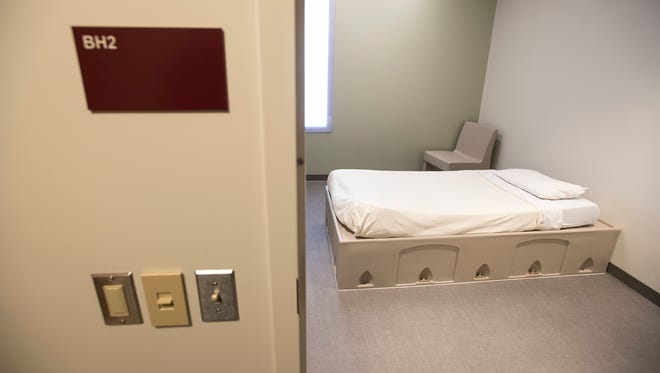
“Not medically needed.”
With a few words, our insurance plan business unsuccessful us.
Our insurance organization unsuccessful our teenage son and as a end result, he paid out with his everyday living.
We paid out with unimaginable, unending, all-consuming grief.
On Jan. 11, 2015, our 15-yr-old son, Jake, died by suicide. He died for the reason that our insurance coverage enterprise considered his psychological wellbeing remedy as not medically vital, in immediate contradiction with the evaluation of his physicians.
No other relatives must have to working experience the form of decline we have endured.
Court docket ruling offered vital protection
Alongside a lot of mental health advocates, we rejoiced on Feb. 28, 2019, in reaction to a landmark ruling in just one of the most important overall health coverage circumstances of the 21st century, Wit v. United Behavioral Well being (UBH).
In the ruling, a decide identified that UBH (the largest insurer in the nation) was mistaken to use its internally developed expectations for coverage as an alternative of typically accepted clinical benchmarks. We believed coverage corporations would eventually be held accountable to make health-related requirement determinations reliable with approved medical requirements, rather than deny protection primarily based on arbitrary, untransparent, gain-determined, internally made standards.
Now an appellate courtroom panel has set our challenging-gained gains in peril. Its determination should not stand.
Mental health:Why a lot more than 100 psychiatric beds shut
The demo court docket ruling in The Wit v. UBH was an massive earn for persons searching for psychological overall health procedure – and it would have compelled insurers to modify their techniques for the much better. Those improvements would have served Jake.
Outpatient expert services weren’t supporting Jake
Jake was hospitalized twice in one particular month for suicidal ideation.
All through his very first hospitalization, he spent 5 times in the hospital prior to getting admitted to an outpatient software as necessary by our insurance organization. The plan was not prosperous. He was hospitalized once again the place he was kept for an additional 5 days.
We understood he was not prepared to appear residence, and his physicians agreed. Not only did our insurance plan business disagree, citing health-related requirement, they insisted he return to the similar outpatient program he currently unsuccessful at.
Irrespective of our advocacy, and that of his health professionals, our coverage enterprise was adamant that he would have to are unsuccessful at the outpatient treatment plan once more just before he could shift to an inpatient application.
We implored them to reconsider but all they could provide was an attraction. We were in disaster as a great deal as Jake, but we resolved to file the appeal.
We gained an too much to handle packet of papers in the mail and had no notion what to do and where by to begin. There was so a lot facts wanted and facts we could not supply. Our son’s existence was distilled into a bunch of health care codes we did not realize.
Fewer than three months afterwards, he completed suicide.
Revisit this ruling so other family members are not at risk
The health-related requirement criteria applied by insurance companies is steeped in stigma and disparity instead than medical tips. If Jake had a cardiac situation and his medical practitioners believed his coronary heart was not potent plenty of for him to come property, they would have saved him in the clinic. Why was this any various? Simply because he had a mental ailment.
Shortly ahead of his 15th birthday, in October, they produced him, and by Jan. 11, he was gone.
The Wit v. UBH ruling that once brought us some hope for modify was inexplicably reversed by three judges in the 9th Circuit Court of Appeals, which consists of Arizona. I am unmoored by this alarming and unconscionable transform, which will embolden insurers to make conclusions in accordance to their personal logic and out of step with scientific specifications.
The Wit ruling as it stands means that people who want care won’t get it. Jake’s health professionals knew he essential inpatient care. They understood the severity of his suicidality and that outpatient treatment method was not working.
Yet, coverage overruled the clinical experts who understood our son’s serious affliction. They did not shell out for medically needed treatment method, but we did.
We paid the best price.
There is nonetheless time for the judges of the 9th Circuit to revisit this case. It is urgently wanted. If it is left unaddressed, hundreds of thousands of Americans who are searching for entry to treatment might not discover it when they need it most.
Denise Schatt-Denslow is executive director and co-founder of The JEM Basis, which seeks to prevent youth suicide. She and her husband, Ben Denslow, also designed the Arizona Coalition for Coverage Parity, whose concentration is to enact laws to assure that wellbeing insurance policies companies can not discriminate between actual physical health and psychological wellness. Reach her at [email protected].




